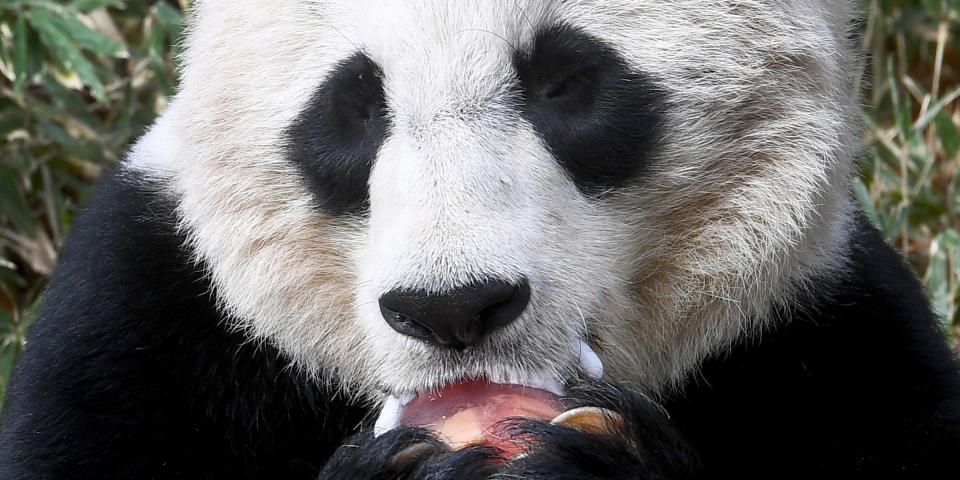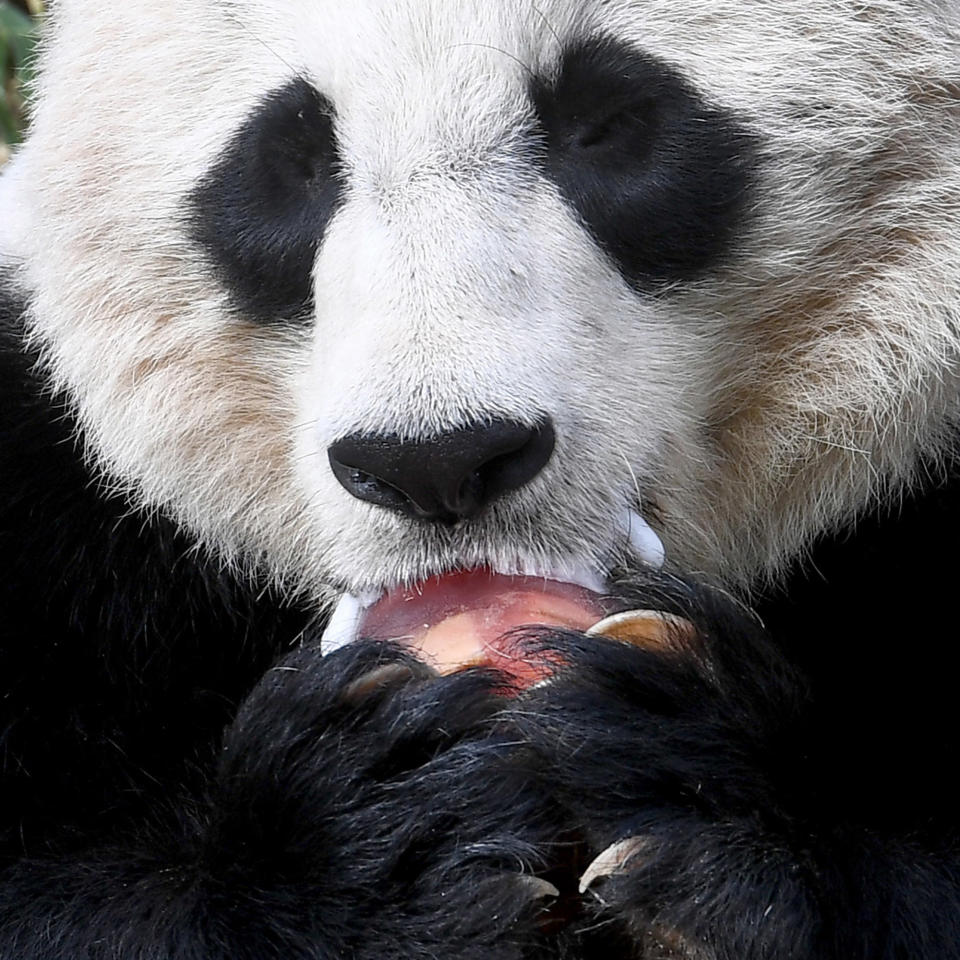National Zoo's giant panda Mei Xiang gives birth to cub
Congratulations are in order for Mei Xiang, the female giant panda at the National Zoo in Washington D.C.
The 22-year-old panda gave birth to a cub on Friday night.
The zoo said in a release that their panda team "heard the cub vocalize and glimpsed the cub for the first time briefly immediately after the birth.”
“Giant pandas are an international symbol of endangered wildlife and hope, and with the birth of this precious cub we are thrilled to offer the world a much-needed moment of pure joy,” said Steve Monfort, John and Adrienne Mars Director of the Smithsonian’s National Zoo and Conservation Biology Institute. “Because Mei Xiang is of advanced maternal age, we knew the chances of her having a cub were slim. However, we wanted to give her one more opportunity to contribute to her species’ survival."
Mei Xiang became the oldest giant panda to ever give birth in the United States, and the first in the country to give birth after the use of frozen semen.
Related: If a new panda is born next week, it would be Mei Xiang's fourth child!
Veterinarians inseminated her with 5-year-old frozen semen from her mate, Tian Tian. Last week, the zoo warned people the panda could reabsorb the fetus and they were not sure she would actually give birth, but on Aug. 19 they said they were ready for the baby.
A video posted by the National Zoo showed zookeepers moving their office into the hallway to convert it into a panda cub nursery.
"Unlike humans, giant pandas experience a phenomenon referred to as delayed implantation. After fertilization, an embryo will not attach to the uterine wall until weeks or months later. It is not clear what causes the embryo to implant into the uterine wall. After implantation, the embryo grows exponentially. Veterinarians and the giant panda team have been conducting regular ultrasounds on Mei Xiang since July to track changes in her reproductive tract," the zoo explained at the time.
The baby panda is the zoo’s first in five years. Mei Xiang has three surviving cubs that live in China, per an agreement between China and the United States.


